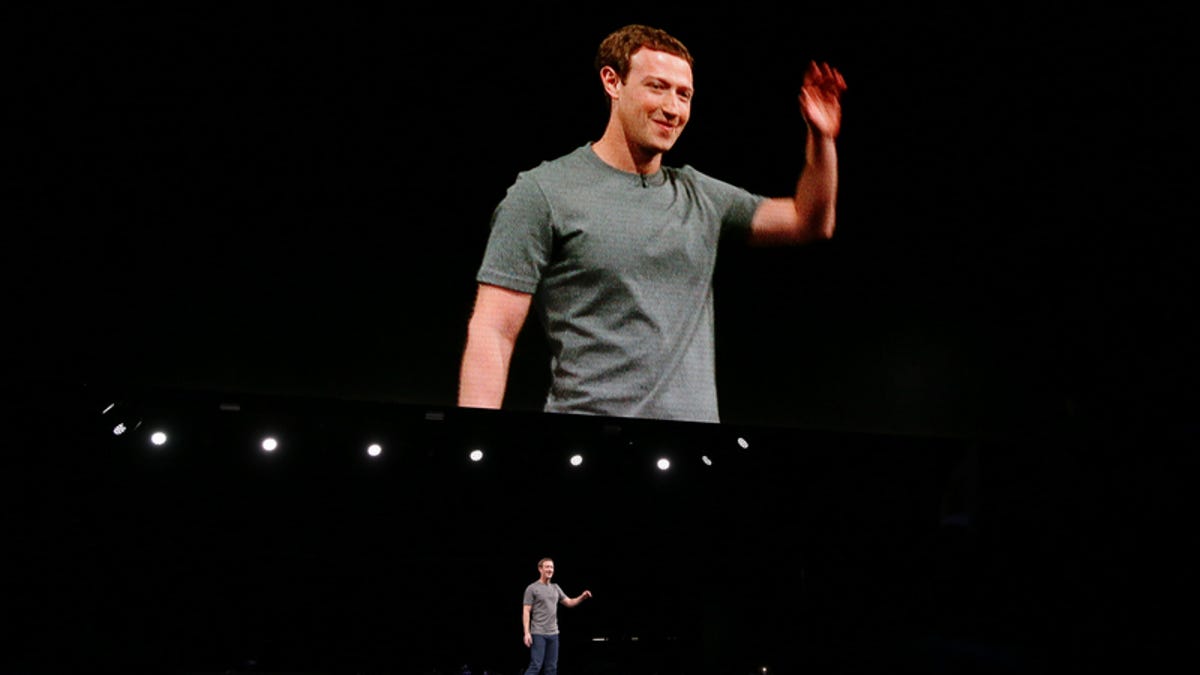Facebook wants to put the ‘social’ in virtual reality

Samsung’s Galaxy S7 keynote was full of surprises. The ultimate one: Facebook CEO Mark Zuckerberg strode out on stage to explain how putting on a VR headset can actually be social.
“Pretty soon, we’re going to live in a world where everyone has the power to share and experience whole scenes, as if we’re there in person,” said Zuckerberg. He explained how he plans to use a 360-degree camera like the just-announced Samsung Gear 360 to share immersive videos of his new daughter’s first experiences with his parents.
According to Zuckerberg, more than one million hours of video have already been viewed in Samsung’s Gear VR headset, and millions of new people will get to try the Gear VR this year. (Samsung will include a free Gear VR, a $99 value, with every Galaxy S7 pre-order.)
Watch this: Mark Zuckerberg touts 360 video and social VR in Barcelona
Zuckerberg’s surprise appearance, which caused a stampede of journalists to rush the stage for photos and selfies, is his latest push to bring virtual reality to the mainstream. Facebook, through its Oculus unit, is one of many companies banking on VR as the next technology to excite consumers.
And while Oculus will begin shipping its headset to early adopters next month, Oculus has never shown a Facebook app running on the platform, or really any way to interact with your Facebook family and friends in virtual reality.
Journalists mobbed the stage to get Zuckerberg’s autograph shortly after this picture was taken.
But that may soon change. At the moment Zuckerberg took the stage, Facebook simultaneously announced the creation of a dedicated “Social VR” team.
The new team will work with both Oculus and other teams at Facebook to explore the future of social interaction in VR. “This team will explore how people can connect and share using today’s VR technology, as well as long-term possibilities as VR evolves into an increasingly important computing platform,” the company wrote in an official blog post.
It’s not the first time that Facebook has talked about making VR more social. One year ago, Facebook chief product officer Chris Cox admitted that the company was working on its own VR apps at Recode’s Code/Media conference. And separately, Oculus has released a “Social Alpha” experience on the Samsung Gear VR headset which lets owners watch videos on Vimeo or Twitch with other Gear VR owners — but not necessarily their Facebook friends.
Facebook has struggled with how much to steer its own VR ambitions. Originally, Oculus VR was the grassroots success story of the boy genius — Oculus founder Palmer Luckey — who managed to raise $2 million on Kickstarter on the strength of the idea that cheap smartphone components could make VR affordable. When Facebook bought the company for $2 billion in 2014, some of the goodwill evaporated.
To counter complaints that he had sold out, Luckey told me that Oculus would stay an independent company within Facebook. According to Luckey, staying independent was one of the conditions of the Facebook / Oculus deal. And though CNET understands that most Oculus staff have relocated from the company’s original Irvine, California offices to Facebook’s headquarters in Menlo Park, it appears that Facebook has mostly stuck to its word.
There’s another image problem that Facebook may need to combat, though: the notion that people become antisocial, shutting out the world, when they put on a VR headset. It would be strange for the world’s biggest social network to produce a product like that.
Any image problem could be an issue right now, before consumers have decided whether or not virtual reality might be a fad.
Full disclosure: My wife works at Facebook, owner of Oculus VR, as a business-to-business video producer.


















